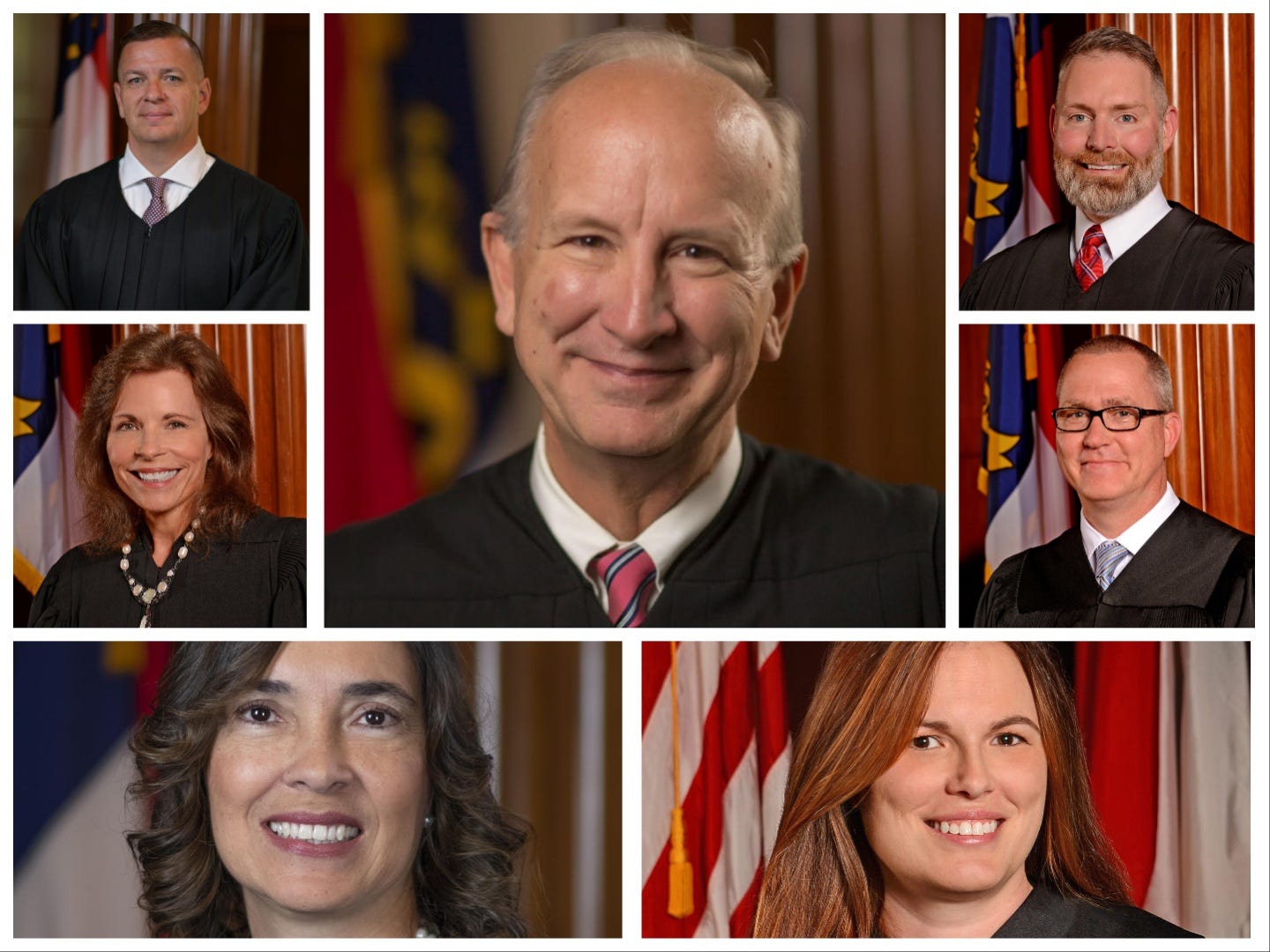How NC Republicans cemented the GOP's full control of the federal government
Through redistricting, Democrats lost three congressional seats— enough to sway the balance of the U.S. House come 2025.

On Wednesday, the Associated Press called the final outstanding congressional race, cementing the GOP’s 220-215 advantage in the U.S. House over the next two years. This gives Republicans full control of the federal government and President-elect Donald Trump greater ability to enact his policy agenda.
Without North Carolina, the GOP’s congressional majority wouldn’t have been possible.
That’s because maps enacted ahead of the 2024 election to favor Republicans prompted the ousters of Democratic U.S. Reps. Wiley Nickel, Kathy Manning and Jeff Jackson. Republicans Brad Knott, Addison McDowell and Tim Moore will soon head to Congress in their place. And this three-seat swing in the 2024 election was enough to give the GOP control of the U.S. House.
But to dive into the why and how this was possible, we have to look not just at recent redistricting, but a steady erosion of judicial independence over the past two decades, increased partisanship in North Carolina’s high court in the last several years, missed opportunities by Democrats and strong GOP performance in statewide judicial races.
Disorder in the court

For years, Democrats had benefitted from party labels in judicial races. But the tides started to change at the turn of the century.
In 2002, the state Supreme Court issued a historic ruling in which it struck down voting maps highly favorable to Democrats, holding that there was a “fundamental right of each North Carolinian to substantially equal voting power.”
Bob Orr, a former Republican state Supreme Court justice, is now pursuing a lawsuit that argues voters have an implicit right to “fair” elections under the state constitution. He said the the 2002 decision he was a part of marked a major turning point that resulted in a heightened politicization of the courts.
“We struck down the Democrat gerrymandered plans, and all of a sudden the political parties went, ‘Oh, hell. It makes a difference who's on the Supreme Court.’”
Months later, Democratic lawmakers passed the Judicial Reform Act to make Court of Appeals and Supreme Court races nonpartisan starting with the 2004 election, with the expectation that doing so would benefit them politically.
Over the next decade, Republicans took control of both legislative chambers and worked to entrench their newfound power. In 2015, GOP lawmakers advanced a pair of bills seeking to preserve their gains. It’s an act of self-preservation that remains ongoing. Next week, lawmakers are likely to pass a bill that would, among many things, prevent Gov.-elect Josh Stein from appointing a Democrat to a statewide judicial seat if a GOP vacancy were to emerge.
“In all candor, the mindset of the Democrats when they controlled the legislature was, ‘Fine, sue us. We control the courts, too,’” Orr said. “Now, the mindset of the Republicans is, ‘You don’t like what we do? Sue us. We control the courts, too.’”
Keep reading with a 7-day free trial
Subscribe to Anderson Alerts to keep reading this post and get 7 days of free access to the full post archives.



